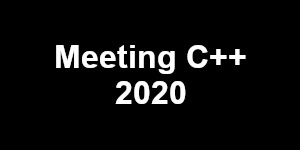A Tour of C++ Modules in Visual Studio--Will Buik
Reading to use them?
A Tour of C++ Modules in Visual Studio
by Will Buik
From the article:
C++ module support has arrived in Visual Studio! Grab the latest Visual Studio Preview if you want to try it out. C++ modules can help you compartmentalize your code, speed up build times, and they work seamlessly, side-by-side with your existing code.
This preview only supports C++ modules in the IDE for MSBuild projects. While the MSVC toolset is supported by any build system, Visual Studio’s IDE support for CMake doesn’t support C++ modules yet. We will let you know once it is! As always, please try it out and let us know if you have any feedback...


